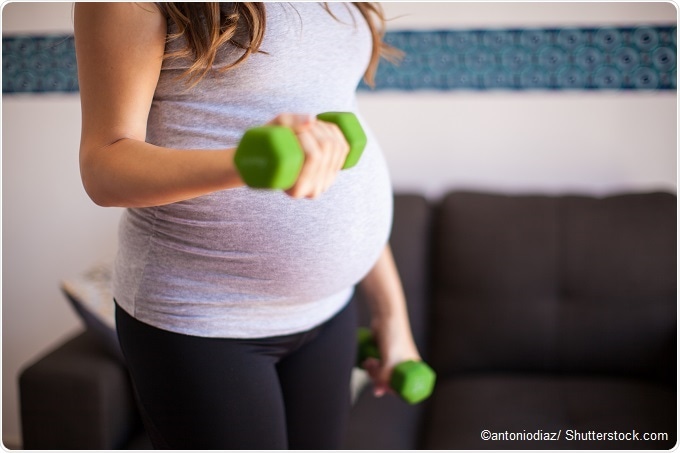Jul 20 2017
A new study published by The BMJ, on 19th July 2017, states that encouraging healthy diets and physical activity during pregnancy can restrict excess gain of weight as well as reduce the chance of having caesarean sections.
The study which was done by the International Weight Management in Pregnancy (i-WIP) Collaborative Group suggests providing advice on eating habits and lifestyle to all women regardless of their age, ethnicity, body mass index (BMI), as well as basic medical condition, as a part of their routine prenatal care, since the benefits are reliable for all.

During pregnancy and in later life, both the mother as well as the infant is put at risk by excess gestational weight gain and maternal obesity, with extensive costs to the society and health service. Minimization of gestational weight gain through diet and physical activity based interventions during pregnancy is expected to have a role in preventing harmful pregnancy outcomes.
The team of researchers from the Collaborative Group evaluated those factors based on interventions in pregnancy, which included access to dietician, special prenatal classes that provided the women with diet and lifestyle advice or moderately intense and structured exercises, along with the outcomes such as, caesarean section, stillbirth and admission to a newborn intensive care unit (ICU).
Individual participant data from 36 randomized trials which involved more than 12,500 women were analyzed by the team. The participants were grouped based on their age, ethnicity, BMI, pregnancy history, and primary medical conditions, and the overall risk of bias of the trials was low. The result showed a steady decrease in gestational weight gain regardless of the differences and remained when studies at high risk of bias were excluded.
The chances of caesarean section were also reduced by the interventions. Yet, on outcomes of pregnancy like stillbirth or admission to ICU, no effects were identified. Supplementary benefit for gestational diabetes was found when additional study-level data were included.
Some limitations of the study such as the fact that most of the participants were white and had medium to high education status – a factor that favors achievements with the interventions- were outlined by the authors. They also didn’t confirm that diet and physical activity based interventions in pregnancy reduce gestational weight gain.
The authors do however conclude that discussions about diet and physical activity in pregnancy, which is delivered as part of antenatal care, should include the potential advantages of reducing the risk of gestational weight gain, caesarean section and gestational diabetes. They also believe that interventions in pregnancy "could be considered in global efforts to reduce caesarean section in relevant populations”.
An editorial linked to the published report provides reassuring information for both women as well as healthcare practitioners that lifestyle interventions in pregnancy are safe, and help limit weight gain.
Study found here.
Source: